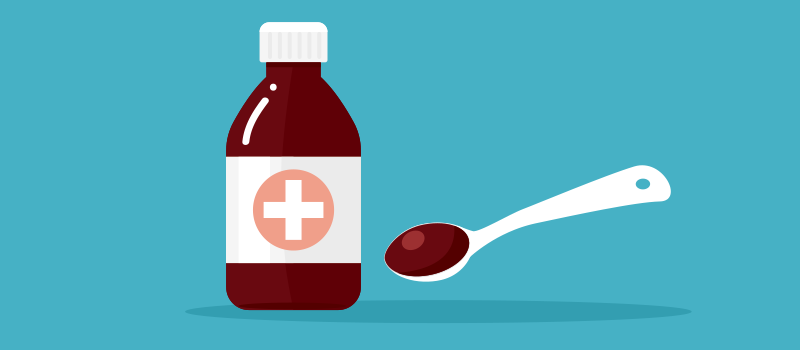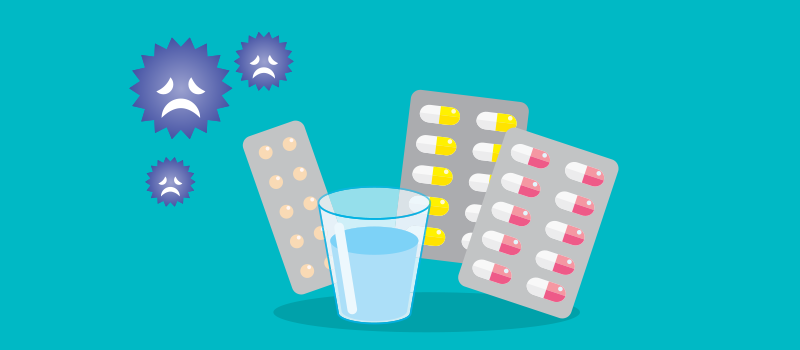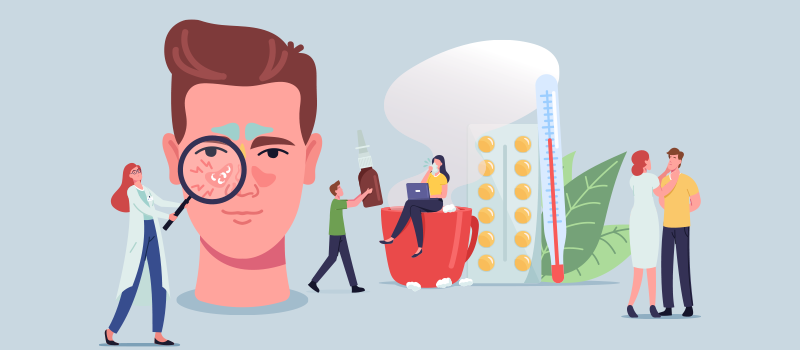What’s the Buzz
The Bee Healthy Blog
How Long Does the Flu Last?

Influenza or “flu” is a common infectious viral illness that affects millions of Americans each year. It is especially common during the winter months or flu season. You can catch the flu multiple times because the viruses keep changing (mutating) and your body does not have immunity to the newer versions.
In most people, the flu is a short-lived, self-limited illness, but some people are at a high risk of developing flu complications.
Please continue reading to learn how long the flu lasts, how it spreads, and what you should do to protect yourself and your loved ones.
Is flu the same thing as the common cold?
Both the flu and the common cold are spread through coughs and sneezes. Both can cause flu-like symptoms. But they are not the same thing. Flu is caused by different viruses and tends to cause more severe symptoms than the common cold.
What’s the difference between flu sore throat and Strep throat?
Sore throat (medical term: pharyngitis) is a common symptom of viral infections like the flu or the common cold. When caused by viral illnesses, sore throat usually resolves on its own. It may be accompanied by symptoms such as a runny or stuffy nose, sneezing, cough, and hoarseness.
Strep throat is an infection caused by Streptococcus bacteria. It is less common than viral infections and is more common in children than adults. Strep throat must be treated with antibiotics to prevent serious complications. The sore throat from Strep throat is typically accompanied by a fever of 101F or more and pain with swallowing.
What are the most common flu symptoms?
Common symptoms of the flu include:
- Fever (high temperature) of 100.4F or higher
- Headache
- Body aches
- Weakness and tiredness
- Dry cough
- Altered smell and taste
Other symptoms may include a runny nose, stuffy nose, sneezing, and sore throat.
How does the flu virus spread?
Flu viruses spread from person to person. Infected persons can spread the virus to others from the day symptoms start. They remain infectious for up to 7 days.
The flu virus is present in tiny droplets from the nose and mouth when an infected person sneezes or coughs. These droplets remain suspended in the air and land on surfaces, where the flu virus can survive for up to 24 hours outside a human host. If you breathe in the droplets, you can get the flu.
You can also get the flu by touching surfaces on which the droplets have landed and then touching your nose or mouth (less common). Frequently touched surfaces like computer keyboards, door handles, remote controls, and handrails are easily contaminated and can lead to flu spread.
Flu symptoms usually appear one to four days after exposure to the virus.
How long does it take to get over the flu?
In generally healthy people, the flu typically lasts for 5-7 days. So, you should start to feel better within a few days. However, you may continue to feel tired for up to two weeks. People who have received flu vaccination usually experience less severe symptoms.
Can the flu vaccine shorten the duration of illness?
The CDC recommends that all persons 6 months and older get the annual flu vaccine. Each year, the vaccines are formulated to include the flu strain (four most common viruses) circulating during a flu season. Getting the flu vaccine or “flu shot” can shorten the duration of your flu illness and reduce your risk of needing to see a doctor by 40-60%.
Who is at high risk of getting the flu?
People who are at a higher risk of getting the flu and of the flu potentially turning deadly include:
- Very young children
- Older adults (age 65 and above)
- Pregnant women
- People with a weakened immune system, for example due to chemotherapy or HIV infection
- People with chronic medical conditions, such as diabetes, lung disease, or heart disease
- Obese individuals (BMI 40 or higher)
You should contact your healthcare provider if your flu symptoms do not improve in one to two weeks or if you develop shortness of breath, difficulty breathing, chest discomfort, or coughing up blood.
How to prevent the spread of the flu?
The following hygiene measures can prevent you from catching the flu or spreading it to others.
- Wash your hands frequently with soap and water.
- Regularly clean frequently touched surfaces.
- Use a tissue to cover your mouth and nose when you cough or sneeze and promptly put used tissues in a bin.
- Avoid unnecessary contact with others when you are sick with flu-like symptoms.
Flu recovery tips
Most people feel sick for 5-7 days after the first flu symptoms appear. There is no specific treatment for the illness. The fastest way to recover from the flu is to get lots of rest, drink plenty of fluids to prevent dehydration, and take acetaminophen (Tylenol) or ibuprofen (Advil, Motrin) for fever or body aches, if needed.
Antiviral drugs like oseltamivir (Tamiflu), baloxavir marboxil (Xofluza), peramivir (Rapivab), and zanamivir (Relenza) are available to reduce symptoms. However, these antiviral medicines are not usually required by healthy people. Antiviral medications for treating the flu are typically reserved for people who are at an increased risk of flu complications, including pregnant women, people with chronic health issues, or people with weakened immune systems.
References:












SOCIAL